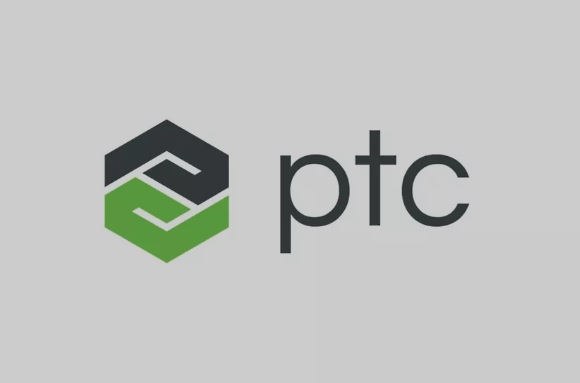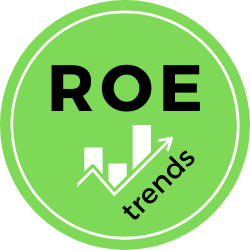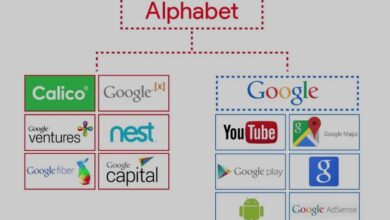PTC Financial Analysis Examining the Growth Trajectory of an Industrial Software Leader

This PTC financial analysis provides a comprehensive evaluation of PTC Inc. (PTC), a global software company specializing in industrial software solutions. This in-depth analysis focuses on the company’s financial performance, examining key metrics, trends, and drivers of its success within the evolving landscape of industrial automation, Internet of Things (IoT), and augmented reality (AR). Investors and stakeholders seeking to understand PTC’s financial health, profitability, and growth prospects will find this PTC financial analysis a valuable resource.
Company Overview
- History: Founded in 1985, PTC initially focused on computer-aided design (CAD) software. The company has since expanded its offerings to include product lifecycle management (PLM), industrial IoT, and augmented reality (AR) solutions. PTC’s software platforms help manufacturers and other industrial companies improve their product development processes, optimize their operations, and enhance their digital capabilities.
- Shareholders: PTC is publicly traded on the Nasdaq Stock Market. Major shareholders include institutional investors such as The Vanguard Group, BlackRock, and State Street Global Advisors.
- Mission: “To provide leading technology solutions that transform how companies create, operate, and service products.”
- Vision: PTC aims to be the leading provider of industrial software solutions that empower companies to achieve digital transformation and drive innovation.
Financial Performance: Transitioning to a Subscription Model
A crucial component of any PTC financial analysis is a thorough evaluation of its financial performance. PTC has undergone a significant transition in its business model, shifting from perpetual licenses to a subscription-based model. This analysis examines key metrics like revenue, annual recurring revenue (ARR), and free cash flow to assess its financial health.
- Revenue and ARR: This PTC financial analysis delves into the trend of PTC’s revenue and ARR (a key indicator of recurring revenue from subscriptions) over the past 10 years. Key factors influencing growth, such as the adoption of subscription models, growth in its user base, and the company’s expansion into new offerings like IoT and AR, are highlighted.
| Year | Revenue ($B) | ARR ($B) | Free Cash Flow ($M) | Operating Margin (%) |
| 2014 | 1.28 | N/A | 230 | 18.0 |
| 2015 | 1.29 | N/A | 240 | 18.6 |
| 2016 | 1.25 | 0.80 | 200 | 16.0 |
| 2017 | 1.19 | 0.90 | 180 | 15.1 |
| 2018 | 1.27 | 1.00 | 250 | 19.7 |
| 2019 | 1.36 | 1.15 | 300 | 22.1 |
| 2020 | 1.46 | 1.30 | 350 | 24.0 |
| 2021 | 1.82 | 1.50 | 450 | 24.7 |
| 2022 | 1.93 | 1.70 | 500 | 25.9 |
| 2023 | 2.07 | 1.90 | 550 | 26.6 |
| 2024 (TTM) | 2.15 | 2.00 | 600 | 28.0 |
(Source: PTC financial reports, company filings)
- Year-over-Year Analysis: This PTC financial analysis reveals that the company has successfully transitioned to a subscription-based model, resulting in renewed revenue growth and improving profitability.
- 2014-2017: PTC’s revenue experienced some fluctuations as it transitioned from perpetual licenses to a subscription model. This transition impacted short-term revenue but laid the foundation for more predictable recurring revenue streams.
- 2018-2024 (TTM): PTC has demonstrated steady revenue growth, driven by the increasing adoption of its subscription offerings, the expansion of its product portfolio into areas like IoT and AR, and the growth of its core CAD and PLM businesses.
- ARR and Free Cash Flow: The growth in PTC’s ARR highlights the success of its subscription model and provides visibility into future revenue. The company has also generated strong free cash flow, reflecting its efficient operations and the recurring nature of its subscription revenue.
- Operating Margin: PTC’s operating margin has been consistently healthy and is improving, reflecting the company’s focus on cost management and the benefits of its subscription model.
- Key Factors: This PTC financial analysis identifies several factors that have contributed to PTC’s financial performance:
- Subscription model: The transition to a subscription model has provided PTC with more predictable and recurring revenue streams.
- Industry leadership: PTC is a leader in the industrial software market, with a strong brand reputation and a loyal customer base.
- Innovation: The company invests in research and development to develop new and innovative products and features, particularly in areas like IoT and AR.
- Strategic acquisitions: PTC has made strategic acquisitions to enhance its capabilities and expand its product offerings, such as the acquisition of ServiceMax (field service management software).
- Focus on customer success: PTC is committed to helping its customers achieve their digital transformation goals and realize value from its software solutions.
Strategic Focus: Transforming How Companies Create and Service Products
This PTC financial analysis highlights the company’s strategic priorities, which focus on transforming how companies create, operate, and service products by providing them with innovative software solutions and enabling their digital transformation journeys. Key strategic initiatives include:
- Digital Thread: Connecting all aspects of the product lifecycle, from design and engineering to manufacturing and service, through a digital thread of information.
- Product Lifecycle Management (PLM): Strengthening its core PLM business by providing comprehensive solutions for product design, development, and management.
- Industrial Internet of Things (IIoT): Expanding its IIoT platform, ThingWorx, to help customers connect their products and machines, collect data, and gain insights to optimize their operations.
- Augmented Reality (AR): Leveraging its Vuforia AR platform to provide solutions for training, service, and manufacturing, allowing customers to visualize and interact with their products in new ways.
- SaaS Transformation: Continuing its transition to a software-as-a-service (SaaS) model, providing customers with cloud-based solutions that offer flexibility and scalability.
SWOT Analysis:
This PTC financial analysis includes a SWOT analysis to provide a balanced perspective on the company’s position:
Strengths:
- Strong Brand Reputation: PTC is a well-known and respected brand in the industrial software market.
- Innovative Product Portfolio: The company offers a wide range of innovative products and services for various industries.
- Subscription Model: PTC’s subscription model provides a predictable and recurring revenue stream.
- Focus on Customer Success: PTC is committed to helping its customers achieve their digital transformation goals.
- Strong Partnerships: PTC has strong partnerships with technology leaders like Rockwell Automation and Microsoft.
Weaknesses:
- Competition: PTC faces competition from other major players in the industrial software market, including Siemens, Dassault Systèmes, and SAP.
- Dependence on Specific Industries: PTC’s performance can be impacted by economic conditions and trends in specific industries, such as manufacturing and aerospace.
- Integration Challenges: Integrating acquired companies and technologies can be complex and may lead to operational challenges.
Opportunities:
- Growth in Digital Transformation: The increasing adoption of digital technologies in the industrial sector presents significant growth opportunities for PTC.
- Expansion in Emerging Markets: Expanding its presence in emerging markets with high growth potential.
- Strategic Acquisitions: Acquiring companies with complementary technologies or customer bases can enhance PTC’s offerings and market reach.
- New Technologies: Leveraging new technologies, such as artificial intelligence, machine learning, and edge computing, can further enhance PTC’s product offerings.
Threats:
- Economic Slowdown: A global economic slowdown could impact spending on industrial software, affecting demand for PTC’s products.
- Competition: Intensifying competition from other industrial software companies could pressure PTC’s market share and pricing.
- Technological Disruption: New technologies and platforms could disrupt the industrial software market.
- Cybersecurity Risks: Cybersecurity threats and data breaches are a concern for any company that handles sensitive customer data, including PTC.
Competitive Landscape: Competing in a Dynamic Industrial Software Market
This PTC financial analysis examines the competitive landscape in which the company operates. PTC faces competition from various players in the industrial software market:
- Key Competitors:
- Siemens Digital Industries Software: A business unit of Siemens AG, offering a portfolio of software solutions for product lifecycle management (PLM), manufacturing operations management (MOM), and other industrial applications.
- Dassault Systèmes: A French software corporation specializing in 3D design, 3D digital mock-up, and product lifecycle management (PLM) software.
- SAP SE: A German multinational software corporation that develops enterprise software to manage business operations and customer relations, 1 including solutions for the industrial sector.
- Autodesk, Inc.: A global leader in 3D design, engineering, and entertainment software, with a growing presence in the industrial software market.
PTC differentiates itself through its focus on the digital thread, its strong product lifecycle management (PLM) offerings, its innovative technologies in IoT and AR, and its commitment to customer success.
Key Projects and Future Outlook: Transforming the Industrial World
This PTC financial analysis identifies key projects and initiatives that are shaping the company’s future and contributing to its long-term growth prospects.
- Vuforia Augmented Reality Platform: PTC is continuing to develop and enhance its Vuforia AR platform, providing solutions for training, service, and manufacturing.
- ThingWorx IIoT Platform: The company is expanding its ThingWorx IIoT platform, enabling customers to connect their products and machines, collect data, and gain insights to optimize their operations.
- Creo CAD Software: PTC is enhancing its Creo CAD software, providing powerful design and engineering capabilities for product development.
- Windchill PLM: The company is strengthening its Windchill PLM offering, providing a comprehensive solution for managing the entire product lifecycle.
Mitigating the Risks:
This PTC financial analysis also examines the risks faced by the company and the strategies it employs to mitigate these risks. PTC is actively managing risks through various initiatives:
- Innovation: Investing in research and development to stay ahead of the curve in the rapidly evolving industrial software market.
- Customer Relationships: Building strong relationships with customers and providing excellent support to maintain customer loyalty.
- Competition: Continuously enhancing its product offerings and pricing strategies to compete effectively with other industrial software providers.
- Economic Conditions: Monitoring and adapting to changing economic conditions that may impact spending on industrial software.
- Cybersecurity: Investing in robust cybersecurity measures to protect its systems and customer data from cyberattacks and data breaches.
Financial Analysis and Valuation:
This PTC financial analysis emphasizes the importance of conducting a thorough financial analysis, considering:
- Revenue Growth: Analyzing trends in revenue growth, considering factors such as the adoption of the subscription model, growth in its user base, and expansion into new offerings like IoT and AR.
- Profitability: Evaluating PTC’s profitability and operating margins.
- Cash Flow: Assessing PTC’s cash flow generation and its ability to fund research and development, capital expenditures, and potential acquisitions.
- Valuation Metrics: Utilizing ratios like price-to-earnings (P/E), price-to-sales (P/S), and price-to-free-cash-flow (P/FCF) to compare PTC’s valuation with its peers in the industrial software industry.
Investor Sentiment and Market Outlook:
This PTC financial analysis encourages investors to stay informed about:
- Analyst Ratings: Monitoring analyst opinions and price targets for PTC stock.
- Market Trends: Assessing investor sentiment towards the industrial software market and broader technology sector, particularly regarding the adoption of digital transformation technologies like IoT and AR.
- News and Media Coverage: Staying informed about news and events that could impact PTC’s performance.
Environmental, Social, and Governance (ESG) Factors:
PTC’s ESG performance is a key consideration for investors, given the company’s impact on the environment and its role in various industries. This PTC financial analysis highlights the importance of evaluating:
- Environmental Sustainability: Evaluating the company’s environmental impact, including its efforts to reduce greenhouse gas emissions, promote sustainable practices, and support environmental initiatives.
- Social Impact: Assessing PTC’s social impact, including its diversity and inclusion initiatives, employee relations, and community engagement.
- Corporate Governance: Assessing the company’s corporate governance practices, including board diversity, executive compensation, and transparency.
Investment Considerations:
This PTC financial analysis provides guidance to investors, suggesting they consider the following factors when evaluating PTC stock:
- Industrial Software Industry Outlook: Assess the long-term outlook for the industrial software industry, including growth trends, competitive dynamics, and technological advancements.
- Competitive Landscape: Evaluate the competitive landscape and PTC’s ability to maintain its market position and adapt to changing customer needs and preferences.
- Strategic Initiatives: Consider PTC’s strategic initiatives and their potential to drive future growth and profitability.
- ESG Performance: Consider PTC’s ESG performance and its commitment to sustainability and social responsibility.
- Financial Performance: Analyze PTC’s financial performance, including revenue growth, profitability, and cash flow generation.
- Valuation: Evaluate PTC’s valuation relative to its peers and its historical performance.
- Risk Tolerance: Align investment decisions with individual risk tolerance and investment goals, considering the dynamic nature of the industrial software market and the competitive landscape.
Conclusion:
PTC is a leading provider of industrial software solutions, with a strong track record of innovation and a commitment to helping its customers achieve their digital transformation goals. The company is well-positioned to capitalize on the growing demand for technologies like PLM, IIoT, and AR in the industrial sector. However, investors should carefully consider the competitive landscape, economic conditions, and other factors that could impact PTC’s future performance. By staying informed about the company’s strategic direction, financial performance, and ESG initiatives, investors can make informed decisions about whether PTC aligns with their investment objectives and risk tolerance. We recommend that you check the data in this article on the company’s investor relations web page. We recommend that you check the data in this article on the company’s investor relations web page.





